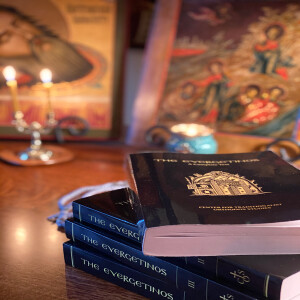
It’s important for us as we read the fathers and consider the discipline that they embraced regarding our appetites and desires that we do not demonize these realities or fall into extreme practices. At the heart of the fathers’ lives and teachings is desire; allowing the love of God and gratitude for his gifts to guide and direct their understanding of life and perception of reality.
It is true that the desert was every bit the laboratory; the fathers often pushed themselves in extreme ways in order that their appetites and their desires for satisfaction and pleasure would lose their grip upon them. They were often harsh with themselves in ways that seem abhorrent to modern sensibilities.
Yet they realized that these realities are very powerful parts of our humanity. The body, for example, through the ascetic life can be a powerful aid in our sanctification. However, if we approach our appetites in an unmeasured fashion, or in a way that is simply focused upon the self, then that which is most beautiful can be corrupted.
Thus, our own embrace of the ascetic life should be rooted in desire; our sense of lack and incompleteness outside of God. Our truest identity is established and found only in Him. Such a vision must be fostered from the earliest years of our lives. For it is not something that one can give or share with another. It comes only through experience. One comes to love the disciplines of which the father speak (fasting, prayer, vigils etc.) because they are far more than mere disciplines. They open up the path for us to experience the invincible joy and peace and freedom of the Kingdom. “Taste and see the goodness of the Lord.”
---
Text of chat during the group:
No comments yet. Be the first to say something!